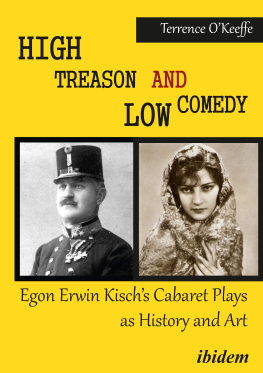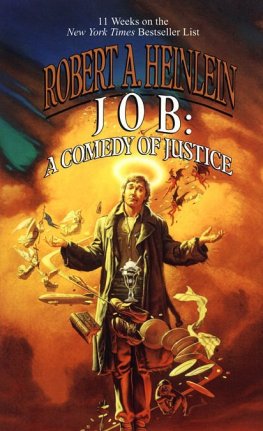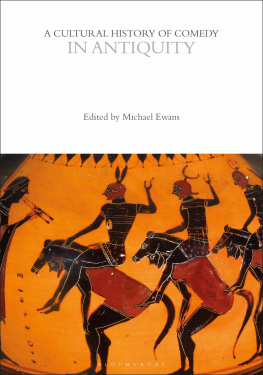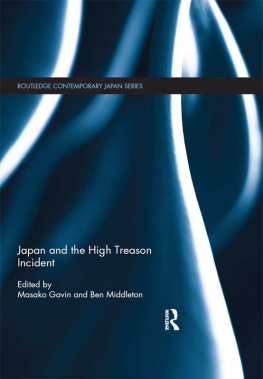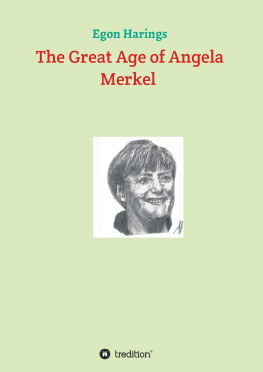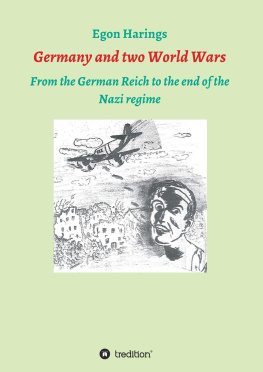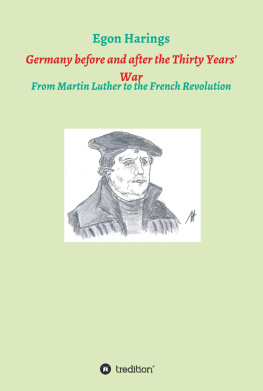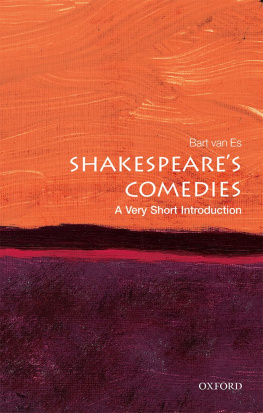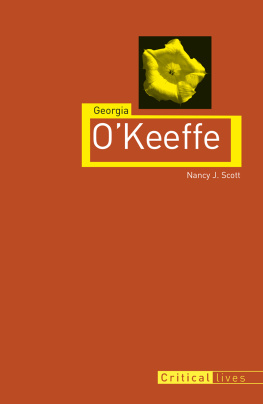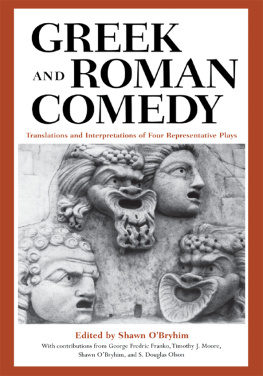Robert T. OKeeffe - High Treason and Low Comedy: Egon Erwin Kischs Cabaret Plays as History and Art
Here you can read online Robert T. OKeeffe - High Treason and Low Comedy: Egon Erwin Kischs Cabaret Plays as History and Art full text of the book (entire story) in english for free. Download pdf and epub, get meaning, cover and reviews about this ebook. year: 2020, publisher: Ibidem Press :b, genre: Art. Description of the work, (preface) as well as reviews are available. Best literature library LitArk.com created for fans of good reading and offers a wide selection of genres:
Romance novel
Science fiction
Adventure
Detective
Science
History
Home and family
Prose
Art
Politics
Computer
Non-fiction
Religion
Business
Children
Humor
Choose a favorite category and find really read worthwhile books. Enjoy immersion in the world of imagination, feel the emotions of the characters or learn something new for yourself, make an fascinating discovery.
- Book:High Treason and Low Comedy: Egon Erwin Kischs Cabaret Plays as History and Art
- Author:
- Publisher:Ibidem Press :b
- Genre:
- Year:2020
- Rating:4 / 5
- Favourites:Add to favourites
- Your mark:
- 80
- 1
- 2
- 3
- 4
- 5
High Treason and Low Comedy: Egon Erwin Kischs Cabaret Plays as History and Art: summary, description and annotation
We offer to read an annotation, description, summary or preface (depends on what the author of the book "High Treason and Low Comedy: Egon Erwin Kischs Cabaret Plays as History and Art" wrote himself). If you haven't found the necessary information about the book — write in the comments, we will try to find it.
Robert T. OKeeffe: author's other books
Who wrote High Treason and Low Comedy: Egon Erwin Kischs Cabaret Plays as History and Art? Find out the surname, the name of the author of the book and a list of all author's works by series.
High Treason and Low Comedy: Egon Erwin Kischs Cabaret Plays as History and Art — read online for free the complete book (whole text) full work
Below is the text of the book, divided by pages. System saving the place of the last page read, allows you to conveniently read the book "High Treason and Low Comedy: Egon Erwin Kischs Cabaret Plays as History and Art" online for free, without having to search again every time where you left off. Put a bookmark, and you can go to the page where you finished reading at any time.
Font size:
Interval:
Bookmark:

ibidem-Press, Stuttgart
Table of Contents
This book is the offspring of an earlier unfinished manuscript to which I had given the provisional title ThePosthumous Lives of Colonel Redl. I came to the topic of Egon Erwin Kisch and the role he played in breaking the Redl espionage case in 1913 (and continuing to write about it throughout his colorful career as a journalist) after seeing Istvn Szabs film, Oberst Redl. Excellent film, I thought, but, as I began to read biographies of Redl and Kisch and the works of historians interested in the Redl affair, I realized the film was almost entirely fictitious, even fantastic, in its treatment of a scandal that had rocked the Habsburg military and political leaderships on the eve of World War One. From there my research spread into the many different social, political and cultural streams that wound their way through Kischs life. And I discovered that the Redl story continued to interest not just Szab (70 years after the event) but a number of artists, right up to the present day.
The wave of First World War histories that began to appear in 2013 (many of which were revisionist in their framing) usually mentioned the Redl case, sometimes in garbled fashion. So, Kisch and the espionage affair were still known and discussed in certain quarters, though, in English, much of this discussion was superficial or misleading. Although he had been well-known during the interwar years, Kischs reputation receded into an undeserved obscurity in the English-speaking world after his death in 1948. However, there are serious works that explain this trend and try to counter it. Kischs most recent major biographers (who published their books in 1997, one in German, the other in English) suggested that his earlier international renown had diminished in Western Europe, the UK, and the US as a result of the polarized opinions of the Cold War era (Kisch had been a prominent leftist activist during the last three decades of his life). The exception to this was Germany, where his works are still a subject of literary and historical discourse.
My research into the espionage affair led me to read Kischs 1920s play about Redls last day and then look at his other plays, none of which had come over into English. Among these works for the stage one stood out immediately. This was his comedic treatment of the story of a rowdy Prague prostitute (nicknamed Toni Gallows) who argues her way into heaven. I translated the two plays and began to build the present book around themes the plays address and the role this theatrical phase of Kischs life played in his writing as he soon became the raging reporter and the star of international reportage during the years between the two world wars. As the reader can see, these are diverse topics, but I have tried to tie them together in a sensible fashion. Remote from Kischs day and concerns, but culturally significant as a gloss on his work, is the present books examining the long afterlives of both of these stories in several media over the last century, a topic that informs my ideas of what happens when historical events become the basis of artistic transformations.
The preceding is the specific background of how my interest in Kisch and his writing evolved. This had a prehistory of many years of reading Central European history and literature, supplemented by numerous trips to that part of the world, which led me to write essays about the regions writers, history and culture that were published in small magazines, starting in 2011. For these earliest opportunities to publish I owe thanks to Dr. Ewa Thompson, editor of The Sarmatian Review, who accepted long pieces about Andrzej Stasiuk. Similar gratitude is due Zsfia Zachr, who opened the pages of the The Hungarian Quarterly to an essay about Hungarys beloved Gyula Krudy. Regarding the Redl affair, my personal experience as a sergeant in the US armys military intelligence branch during 19681969 whetted my curiosity about the once-famous espionage case. But, in order to write the present book, I had to expand my reading to include a large number of specialized historical works, critical writing about Kisch, and a variety of Central European novels in translation. I also needed directional guidance and practical help.
Over the years I received advice, encouragement, and assistance from numerous people who took an interest in my writing about Kisch in general or the Redl espionage affair and the Toni Gallows play in particular. Here is where I thank them. My earliest advisor and supporter was the talented linguist, translator, and writer about Central European culture, the late Harold B. Segel. In the course of doing research about John Osbornes Redl play I received similar support from Osbornes biographer, Luc Gilleman, also sadly deceased before his time. I thank Charles Sabatos as wellhe is the skilled translator of two novellas and one short story written by the inventive Pavel Vilikovsk, and he was happy to correspond with me about Vilikovks writing. In discussing the complexities and unresolved details of the historical Redl case I received sound advice from Dr. Ian Armour, who has written about Central European history and military intelligence matters in the old Dual Monarchy. In acknowledging help with matters pertaining to the complicated Czech-German-Jewish nexus, I thank Dr. Gary Cohen for useful suggestions, and similarly, with respect to Weimar-era theater, Dr. William Grange. I owe a debt of gratitude to James Walker of Camden House, who read an early draft of the manuscript and gave me useful advice about rewriting and reorganization of the text. For their enthusiastic and encouraging responses to a late draft of the manuscript, which elevated my mood, I thank Dr. Leslie Morris of the University of Minnesota and Dr. Todd Herzog of the University of Cincinnati.
Researchers and staff members of several institutes in Germany, Austria, and the Czech Republic also assisted me by sending documents and downloads of old films and television plays that are often difficult to locate. Dr. Viera Glosikov, of Pragues Charles University faculty, was invaluable, sending me her articles on Kisch as a dramatist and remarking on this part of his life. With regard to old plays, films, and contemporaneous critical reactions to them, I thank the following for bibliographical guidance and help in securing hard-to-get materials: Karolina Kotlv of the National Library of the Czech Republic; Matj Strnad of the Czech Film Archive; Susanne Rocca of the Filmarchiv Austria; and Juliane Riedel and Martina Seidel of the German Radio Archive (dRA). For a long-term conversation about Kischs adventures in Australia that made him a hot news item in the English-speaking world during 1934-35, I owe thanks to Dr. Carolyn Rasmussen of Melbourne University, who also steered me to Australian authors who wrote about his impact on that nations culture. And, of course, I express my gratitude to those at the ibidem-Verlag who assisted me administratively and editorially, especially Valerie Lange and Jessica Haunschild. Back in the US, I owe thanks to Stuart Moss of the Nathan Kline Institute for bibliographical help and to Jan Hrab for translating the dialogue of a Czech television play for me. I hope I havent left anyone out, but its possible that I have. I close this with a salute to the memory of Harold B. Segel, a distinguished professor whose knowledge of Central European writing and culture was broad and deep and who was an enthusiastic partisan of E. E. Kischs writing.
Some notes on the text are advisable here. Unless otherwise indicated in the text or footnotes, translations are mine. Square brackets indicate my clarifying notes within quotes or translated passages. Footnotes are grouped by the chapter as book end-notes; some contain important supplementary information about historical matters. Citations are in short form, while full publication information on each work cited or discussed is in the Bibliography. A Bibliographical Note supplies detailed information about the main contemporary repository of Kischs writing, the Kisch
Font size:
Interval:
Bookmark:
Similar books «High Treason and Low Comedy: Egon Erwin Kischs Cabaret Plays as History and Art»
Look at similar books to High Treason and Low Comedy: Egon Erwin Kischs Cabaret Plays as History and Art. We have selected literature similar in name and meaning in the hope of providing readers with more options to find new, interesting, not yet read works.
Discussion, reviews of the book High Treason and Low Comedy: Egon Erwin Kischs Cabaret Plays as History and Art and just readers' own opinions. Leave your comments, write what you think about the work, its meaning or the main characters. Specify what exactly you liked and what you didn't like, and why you think so.

